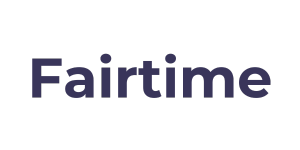Businesses typically employ staff on a full-time, part-time or casual basis. Full time staff tend to be paid an annual salary and work a fixed number of hours most pay cycles without the need for regular timesheets. It’s most common for a full time employee to be paid their regular salary each fortnight or month without too much difference between pay periods.
Historically this has simplified the employment relationship for everyone. While this practice has become standard practice for many Australian businesses, a recent change to the Modern Award system means that employers must change the way they engage their employees.
Today if you employ someone under one of Australia’s 121 Modern Awards, you MUST be able to demonstrate how you pay your staff above the Award.
Payroll compliance effectively means paying your staff above the required rate and avoiding underpayment. Employers demonstrate compliance by:
1) Collecting time & attendance records for all Modern Award employees;
2) Producing a Payslip that demonstrates that the employee has been paid at the correct rate for every hour worked.
3) Performing an annual reconciliation to ensure payroll compliance and where necessary make supplementary top-up / back-payments to affected staff.

Most employers will tell you ‘Of course, we pay above the Award” but few can prove it.
Why do Modern Award employees need a timesheet?
Monitoring the working hours of your employees is no longer just a fancy performance metric. It is a compulsory requirement for employers to keep records of employee start and end times for work. Fair Work also requires these records track unpaid breaks taken by salaried staff under the Modern Awards to ensure all entitlements are afforded to staff.
The change was first introduced in March 2020, impacting thousands of employers and many industries operating under the following 18 Modern Awards:
– Banking, Finance and Insurance Award
– Broadcasting, Recorded Entertainment and Cinemas Award
– Clerks—Private Sector Award
– Contract Call Centres Award
– Horticulture Award
– Hydrocarbons Industry (Upstream) Award
– Legal Services Award
– Local Government Industry Award
– Wool Storage, Sampling and Testing Award
– Manufacturing and Associated Industries and Occupations Award
– Mining Industry Award
– Oil Refining and Manufacturing Award
– Pastoral Award
– Pharmacy Industry Award
– Rail Industry Award
– Salt Industry Award
– Telecommunications Services Award
– Water Industry Award
Fair Work Compliance is Difficult for Australian Employers
It is fair to say that some industries have not been prepared for the changes to Modern Awards. For example, timesheet culture in professional services was unheard of and appeared ‘archaic’ to management.
Many employers within these industries responded by increasing the number of staff recruited and placed on casual contracts. However, as instances of underpayment have surfaced through investigations conducted by the Fair Work Ombudsman, employers have raced for a better solution.
Timesheets are the new normal for Fair Work
Given the changes introduced by the Fair Work Ombudsman requiring employers to undertake an annual reconciliation of payroll records for Award employees, employers are looking for timesheet software that can suit their particular needs.
The bottom line is simply this. Employers need to record timesheets for every single hour worked by staff employed under a Modern Award. They need to communicate this development to their staff because the majority of full time employees don’t understand why they need to fill out timesheets and just think of it as a hassle. The recording of work hours via a timesheet is to protect them and their right to be paid for every hour worked.
The risk for employers is that they have increased exposure to claims of underpayment. Fair Work is also able to seek additional penalties against any employers who cannot show accurate time and attendance data when requested. Typically a Fair Work Compliance Notice is issued after an employee makes a complaint to Fair Work but it’s also common for ‘spot checks’ to be carried out on businesses at random. This is particularly the case in industries that Fair Work thinks has ongoing likelihood of non compliance.
This is why if the Fair Work inspector is already knocking on your company doors, it is likely too late!
If you need timesheets, you need Fairtime!
With the law additionally stipulating a deadline for repaying any underpaid amounts that surface, companies who leverage technology for their remote WFH activities must apply this same mindset for their timesheet and payroll systems.
Fairtime software makes the time tracking process easier than ever, leveraging the power of automation to speed up the work of tracking time with innovations like leveraging pre-filled data from employee contracts, and making it quick and easy to produce compliance reporting in an instant.
We also prioritise empowering staff to track their time with precision. Our user guides are easy to follow in plain English. We have an easy to access dashboard as part of an all-in-one, cloud based application. Australian businesses find Fairtime is an easy roll-out for their organisation.
We don’t just solve payroll compliance, we work with customers to build timesheet culture in any workplace environment.





